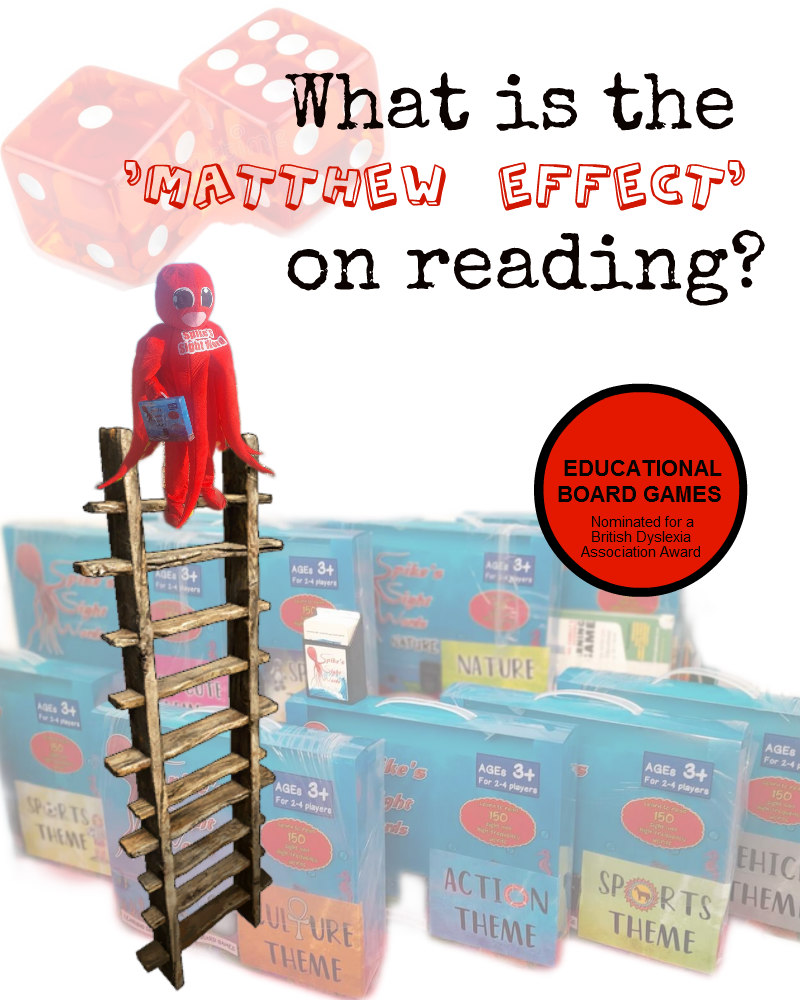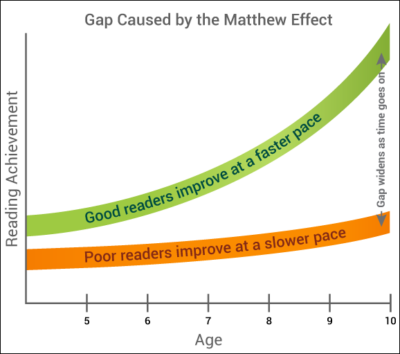
Though the Matthew Effect in education was first coined by Walberg and Tsai in 1983, it was Stanovich (1986) who used it to describe how, in reading, those who start well tend to continue to do so, while those who do not are unlikely to catch up. Not only do they not catch up, according to Stanovich, but there will also be a widening gap between the slow starters and fast starters as their school career continues.
It goes onto describe what happens over time when some children enter into a positive feedback loop, whereby those who learn to read and break the code with relative ease experience a positive affect and are able to read the text that they are given in schools with fluency. That fluency develops a level of automaticity and because they develop automaticity with sounds and words they’re cognitive work space is freed to operate on the meaning of print, the purpose of why children are engaged in it. And so the world opens up to children who have that cognitive space left, who have automatized the code and words.



The converse of this Matthew Effect that Stanovich outlined in the mid eighties where he developed a model of the educational have’s and have not’s in reading is a sadder tale. Those children who experience inordinate difficulty in breaking the code, who aren’t able to quickly assemble these sounds and put them into larger units we call words, and rapidly proceed through the sentences don’t develop the level of automaticity that allows them to have the cognitive work space available to them. As a result of that lack of automaticity, their resources are taken away and focused on the word level and they aren’t able to operate on the meaning.

Here are some ways it can be avoided in the classroom –
- Know your student’s background… and background knowledge.
- Provide the right environment.
- For every “talented” student you provide with a superior experience, provide a “less talented” student with an opportunity as well.
- Incorporate materials and procedures designed to increase beginners’ skills such as our educational board games!
- Hold high expectations for students from disadvantaged backgrounds
- Communicate with parents.
- Treat students as equally as possible.
- Tuition! Tuition and Tuition! All students in danger of suffering from the Matthew Effect should be allowed to benefit from after-school or home tutoring programs.


